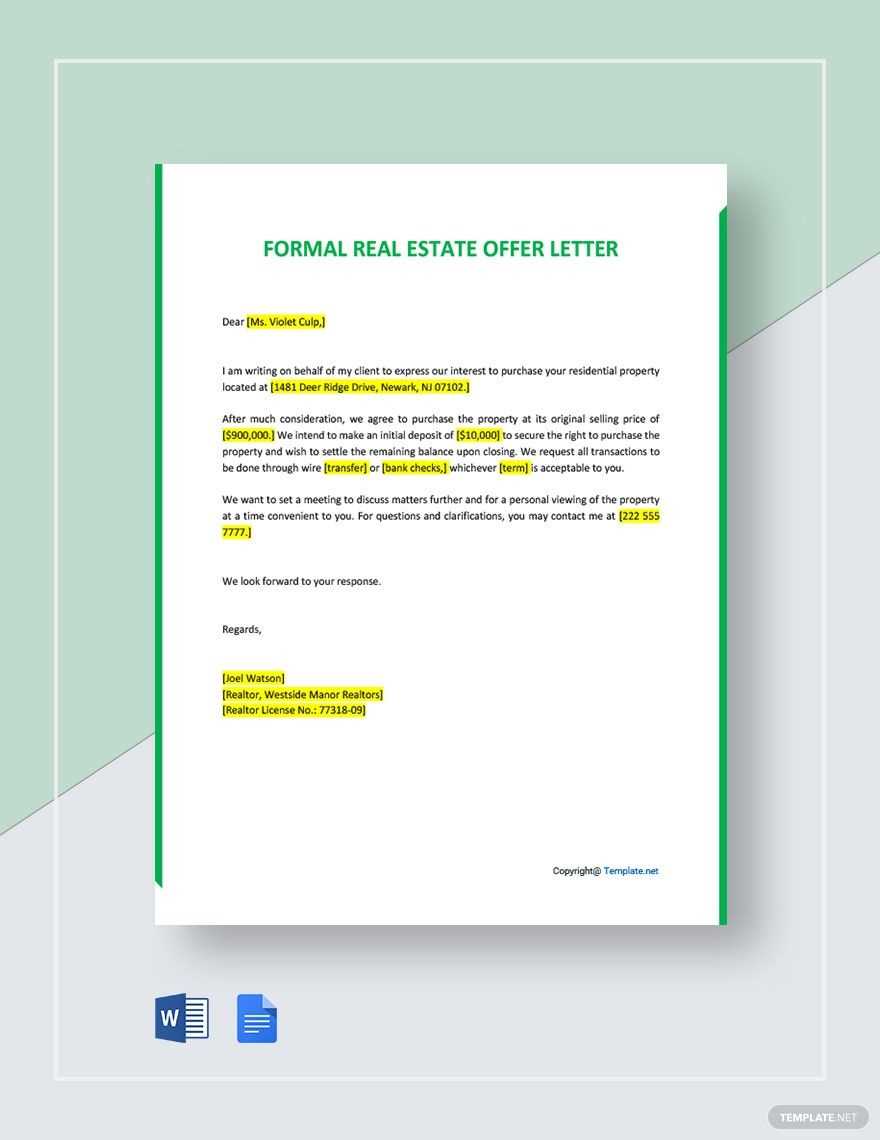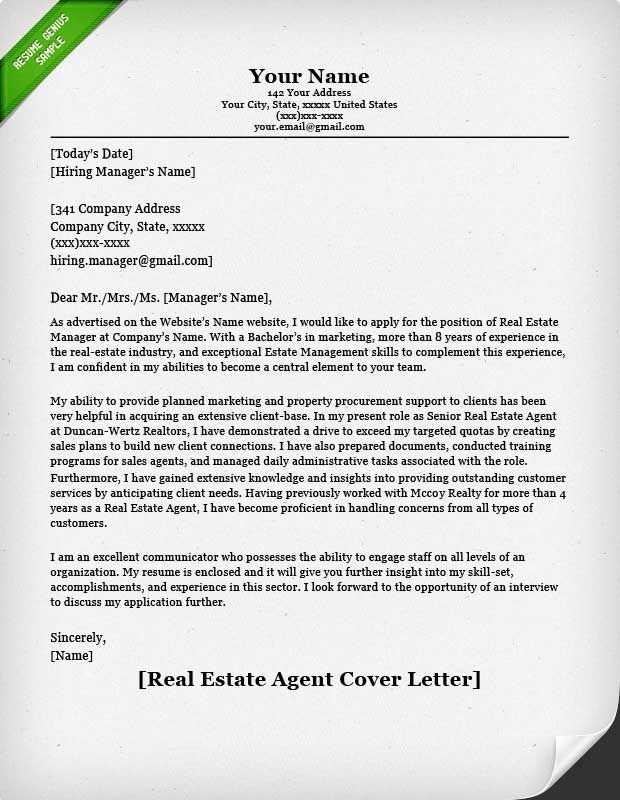Real Estate Expired Listing Letter Template for Agents

In the competitive world of property sales, not every deal goes as planned. Some properties may remain unsold despite efforts to market them. However, these situations present unique opportunities for agents to re-engage with potential clients. Effective communication is key to turning these scenarios into success stories.
Reconnecting with property owners whose sales have faltered can be a rewarding challenge. By reaching out with a well-crafted message, agents can remind homeowners of their expertise and offer new strategies to achieve a successful sale. The right approach can breathe new life into a stalled transaction and build long-term relationships.
Crafting a personalized message that addresses the specific needs and concerns of each client can make all the difference. By understanding the reasons behind an unsold property, agents can tailor their communication to show how they can help overcome obstacles and achieve the desired outcome. This can lead to a positive response and potentially result in securing the property for future marketing efforts.
How to Write an Expired Listing Letter

When a property sale does not go through as expected, it’s important to approach the situation with a thoughtful, professional message. A well-constructed communication can help re-establish rapport with clients and show your expertise in navigating challenging situations. Here’s how to craft an effective message that can rekindle the selling process.
Begin by acknowledging the client’s previous efforts. Express understanding of their situation and convey your willingness to help them find a better solution. It’s essential to sound empathetic yet confident in your abilities to succeed where others may have struggled.
- Start with a friendly greeting – Introduce yourself clearly and acknowledge your past interactions with the client.
- Recognize their past efforts – Show understanding of the frustration they might have faced in trying to sell the property.
- Offer new insights – Share what makes your approach different, and explain how you can help address their specific challenges.
- Include a call to action – Encourage the client to contact you for a consultation or offer a follow-up plan to discuss new strategies.
Keep your tone professional, positive, and focused on solutions. Avoid placing blame on any party involved in the previous sale attempt. The goal is to provide reassurance and demonstrate how your expertise can lead to a successful outcome.
Finally, close with a polite invitation to reconnect. Make it easy for the client to reach you by offering contact details or suggesting a convenient time for a conversation. Showing flexibility and approachability can help encourage a response.
Crafting a Persuasive Message to Clients
When reaching out to potential clients after a property sale has not gone as planned, it’s crucial to create a message that not only informs but also motivates action. Your goal is to rebuild trust, provide value, and present a clear path forward that convinces the client to reconsider their options with your assistance. The right words can turn a missed opportunity into a fresh start.
Focus on Understanding and Empathy
Begin by acknowledging the client’s past efforts and the emotions they might be experiencing. Understanding their frustration and demonstrating empathy will show that you care about their situation. This creates a foundation of trust, making the client more receptive to your message. Make sure to personalize your communication by mentioning specific details relevant to the property or situation.
Highlight Your Expertise and New Strategies
In the next part of your message, shift the focus to your unique abilities. Explain how your approach differs from past efforts and what specific strategies you would implement to achieve a successful outcome. Highlight any new methods, tools, or insights that can give the client confidence in your ability to succeed. Ensure that your tone remains positive and solution-oriented throughout.
End the message with a strong call to action, inviting the client to take the next step, whether it’s scheduling a call or meeting to discuss further. Make it clear that you are ready and capable to help them achieve their goals.
Why Expired Listings Are Valuable
While some may view properties that have failed to sell as lost causes, these opportunities can actually be quite valuable. The fact that a home didn’t sell the first time around doesn’t mean it isn’t a good fit for the right buyer. In fact, it opens up a new chance for agents to engage with clients and offer fresh solutions that might have been overlooked previously.
One of the main reasons these unsold properties are valuable is because they come with an established level of interest. Previous buyers who were interested in the property may still be on the lookout for similar homes, and those who didn’t take action earlier could be convinced with a new approach. This makes it easier to start conversations with potential buyers, who are already somewhat familiar with the property.
Additionally, these homes often provide insight into what hasn’t worked in the past, which is a valuable learning tool. By identifying the reasons for the previous lack of success, agents can adjust their strategies and present the property in a way that addresses these issues. This makes for a more targeted and efficient marketing effort that could lead to a successful sale.
Identifying Opportunities in Expired Listings

When a property has not sold after being on the market for a while, it may seem like an opportunity lost. However, these situations can be seen as a chance to re-engage with both the property owner and potential buyers. Identifying the reasons why a sale didn’t happen the first time provides valuable insights that can be used to turn the situation around. There are several key factors to consider when evaluating these unsold properties and recognizing opportunities for success.
Evaluate the Market Conditions
Before taking any action, it’s essential to understand the broader market trends during the previous listing period. Changes in local demand, seasonality, or economic factors might have played a significant role in why the property didn’t sell. By identifying these external factors, you can adjust your strategy and approach the property with a fresh perspective. Here’s a table to help summarize key market insights:
| Factor | Potential Impact |
|---|---|
| Local demand | Low interest from buyers can make selling difficult, but increased interest may create new opportunities. |
| Seasonality | Certain times of year may be less favorable for selling, but changing seasons could drive more interest. |
| Economic conditions | Economic shifts such as interest rates or employment rates can influence buyers’ willingness to purchase. |
Addressing Previous Marketing Challenges
Another critical aspect of identifying opportunities is understanding why the original sales efforts fell short. The property’s marketing strategy, pricing, or presentation may need adjustments. Whether it was overpricing, poor staging, or ineffective advertising, reevaluating these factors will give you the chance to reintroduce the property with improvements that better align with what today’s buyers are looking for.
Key Elements of an Effective Letter
When crafting a message to reconnect with property owners after a sale attempt has fallen short, it’s important to include specific elements that capture attention, convey value, and prompt action. A successful message addresses the client’s concerns while offering a solution that aligns with their needs. Ensuring your communication is both professional and persuasive will increase the likelihood of a positive response.
Essential Components to Include
- Personalization – Begin with a personal greeting that references the property and the client’s past experience.
- Empathy – Acknowledge the challenges they’ve faced and express understanding of their frustrations.
- Clear Value Proposition – Highlight how your approach differs from previous attempts and explain how you can help achieve a successful sale.
- Evidence of Expertise – Provide examples or testimonials that demonstrate your ability to succeed in similar situations.
- Call to Action – Encourage the client to take the next step, whether it’s scheduling a meeting or contacting you for more information.
Maintain a Positive and Solution-Oriented Tone
Throughout the message, focus on solutions rather than dwelling on past failures. Ensure the tone remains positive, forward-looking, and focused on the benefits of working together. This will help build trust and convey that you are fully committed to helping them achieve their goals.
Essential Components to Include in Your Letter
To craft an effective communication with a property owner after their home hasn’t sold, it’s crucial to include specific elements that address their concerns while offering actionable solutions. A well-structured message ensures that the client feels heard, valued, and motivated to take the next step in re-engaging with you. Each part of your communication should aim to build trust, convey expertise, and offer reassurance.
Personalization and Acknowledgment
Personalizing the message is key to establishing a connection. Begin with a friendly and direct greeting, acknowledging their previous experience. Address the property specifically and mention any challenges they may have faced during the initial attempt to sell. This shows that you are not sending a generic message, but rather one tailored to their unique situation.
Highlighting Your Expertise and Offering Solutions
Next, provide clear information on how your approach differs from the previous one. Share your expertise and mention how you plan to address the challenges they faced. Offering a fresh perspective and suggesting practical solutions can demonstrate your problem-solving skills, making the property owner more likely to trust you with their property moving forward.
Reassurance is equally important. Let the client know that despite the setbacks, there is still significant potential for a successful sale. Explain how your new strategies will help overcome previous obstacles, and outline how you plan to market the property differently to attract the right buyers.
Common Mistakes to Avoid in Letters
When crafting a message to reconnect with property owners after a sale attempt has not been successful, it’s crucial to avoid common pitfalls that can negatively impact the response rate. A poorly worded message can come across as impersonal or unprofessional, which may alienate potential clients. By understanding and avoiding these mistakes, you can increase your chances of fostering a positive relationship and ultimately securing the sale.
One of the most significant errors is being overly critical of the previous sale attempt. Blaming others or focusing on past failures can create a negative tone, making clients feel discouraged or defensive. It’s essential to maintain a positive, solution-focused approach, emphasizing how you can move forward together rather than dwelling on what went wrong.
Another mistake is sending a generic or one-size-fits-all message. Clients can easily spot a template, and it can make them feel like they are just another number. Personalization is key–ensure that the message speaks to the unique circumstances of the property and owner. A lack of genuine engagement can lead to a lack of trust, reducing the likelihood of them taking further action.
Additionally, failing to provide clear next steps is a common oversight. Without a strong call to action, clients may feel uncertain about what to do next, leading to missed opportunities. Make sure your message includes a specific invitation to continue the conversation, such as scheduling a consultation or providing more details about your services.
Ensure Your Message is Clear and Professional

When reaching out to potential clients after a previous attempt to sell has not been successful, clarity and professionalism are paramount. Your communication should be direct and easy to understand, leaving no room for confusion. At the same time, maintaining a professional tone ensures that you come across as reliable and trustworthy, qualities clients value when considering working with you.
Clear language is essential. Avoid jargon or overly complicated terms that could make your message difficult to comprehend. The goal is to communicate your expertise in a straightforward way that resonates with the client. Whether you’re addressing concerns or outlining your new approach, keep the language simple and to the point.
Equally important is maintaining a respectful and polished tone. Be mindful of your choice of words and ensure your message reflects your professionalism. Even if the previous sales attempt was less than successful, your tone should remain constructive and optimistic. Clients will appreciate your ability to handle the situation with grace and confidence, which will strengthen their confidence in you moving forward.
Incorporate well-structured paragraphs and bullet points to break down important information. This makes your message easier to read and helps clients quickly understand the key points, such as how you plan to address past challenges and how they can take the next step.